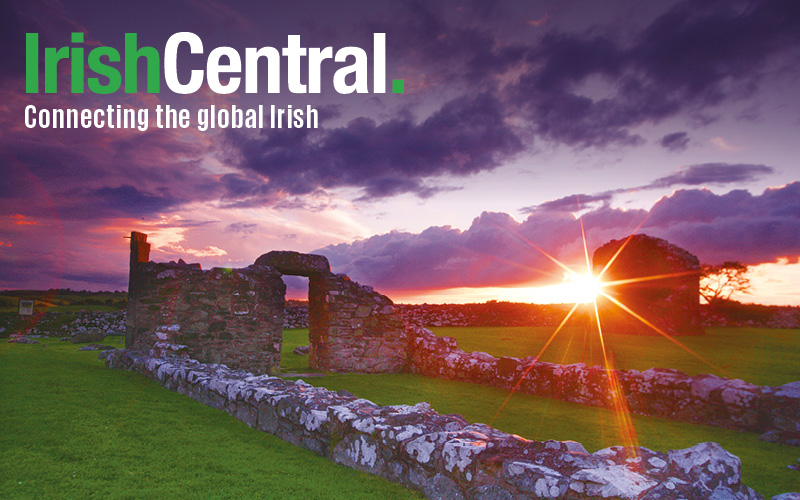Clinton Captures Catholic Vote
THE Irish Catholic vote is going for Senator Hillary Clinton overwhelmingly in the primary race against Senator Barack Obama, the latest exit polls show.
Clinton is currently winning 61% of the white Catholic vote according to the pollsters, while Obama is winning just 33%.
Far more Catholics are going for Clinton than Obama, with white Protestant voters supporting her by 53% to 38%.
As Jim Dwyer pointed out in The New York Times last weekend, Catholics are the best barometer of who the next president will be.
"The Catholic scorecard is five Republican and three Democratic presidents, and one popular-vote-winning but presidency-losing Democrat, Al Gore," writes Dwyer, pointing out that "white Protestants always support the Republican while African Americans and Jews support the Democrat."
So what is Clinton leading so much among white Catholics? In terms of activist Irish Catholics of course, there is a long history of working with the Clintons on issues such as Northern Ireland and immigration reform.
There is also a comfort level with Clinton which is not there with Obama simply because communities are not familiar with him. While it is understandable that African Americans would embrace one of their own, it is a slower process for others.
Catholics tend not to be risk takers, and Clinton is a better fit for the majority of them in terms of being a known quantity. Exit polls also show that working class voters, many of them Catholics, prefer to stay with the familiar rather than taking a risk with a relative newcomer such as Obama.
It all raises the interesting questions whether Obama can capture the Catholic vote if he becomes the nominee. Again the jury is out on that issue. McCain would seem ready-made for a segment of the electorate which is high on patriotism and support for the military.
U.S. To Redo Tax Treaty
IRELAND'S favorable tax treaty with the U.S., which has led to massive benefits for the Irish economy, is now down for renegotiation.
The Sunday Business Post in Ireland has learned
that the U.S. Treasury Department has contacted Irish authorities and requested talks to renegotiate the taxation agreement.
The Post reports that the move "could have a significant effect on the taxation status of U.S. multinational companies operating in Ireland and for Irish residents who own property or assets in the U.S."
At present, it remains unclear what elements of the treaty the U.S. is seeking to renegotiate, the paper reports.
Negotiations are set to begin in June between the treasury and the Department of Finance and the Department of Foreign Affairs. The key element is the law in relation to how dividends are treated between Irish-based subsidiaries and the parent company in America. Current corporate tax rates in Ireland are 12.5%, far lower than in the U.S.
That has allowed billions of dollars in profits to be declared in Ireland rather than America for Americans companies.
Authorities in the U.S. have made contact with the Revenue Commissioners, the Department of Finance and the Department of Foreign Affairs in relation to the upcoming negotiations.
The renegotiation could be very bad news for the Irish government and Taoiseach (Prime Minister) Bertie Ahern. At a time when the economy is slowing, the notion that many of the American corporations may be forced to declare their dividends back in America rather than through their Irish subsidiaries as at present could be troublesome. An exodus of multinational companies would be a nightmare scenario.
Historical Society Ready
IRISH America's finest building, the American Irish Historical Society, is set to re-open in a blaze of glory this St. Patrick's Day.
The building has been closed for much needed renovations since St. Patrick's Day last year. The new building, smack across from the Metropolitan Museum on Fifth Avenue, is said to be an extraordinary makeover.
It is expected that a senior Irish government minister will do the honors on the day before St. Patrick's for the society, which has an priceless collection of Irish historical papers, artifacts and priceless documents.
The society's Director General Dr. Kevin Cahill has made the preservation of the structure and its contents his life work, and his amazing commitment to the building will be evident when it reopens. Expect a hectic schedule as the new building finds its feet and begins to attract new generations of Irish American enthusiasts.
New Book on North
THERE have been a flood of books on Northern Ireland since the peace process began, but one of the best just crossed my desk from the Institute of Irish Studies at the University of Liverpool. It is published by University of Chicago Press in the U.S. and will be available from March 15.
The book is entitled The Long Road to Peace in Northern Ireland and is based on a series of lectures by leading participants in that process delivered at the Peace Institute.
It is edited by Professor Marianne Elliott, a noted scholar whose book on Wolfe Tone is considered the best on the subject. She was also a member of the Opsahl Commission which was one of the first international commissions to predict that a peace process could succeed in Northern Ireland under certain circumstances.
What is most interesting is that there is considerable coverage of the Irish American role in the process. Among the contributors are Senator George Mitchell and Kevin McNamara, who writes about the importance of the U.S. role and the MacBride Principles. More information from kmcguire@ press.uchicago.edu.




Comments